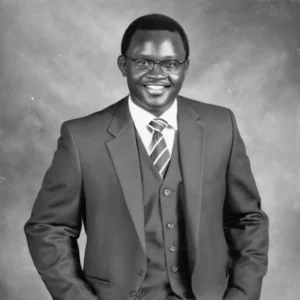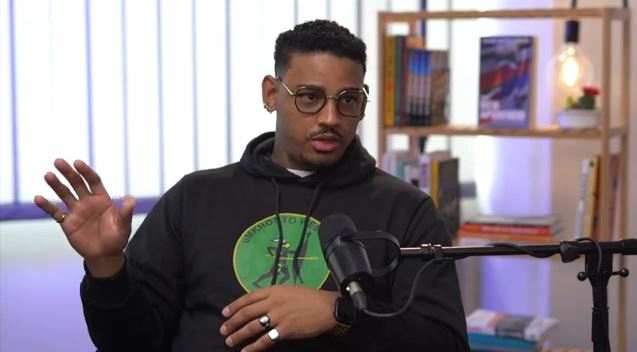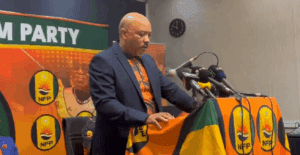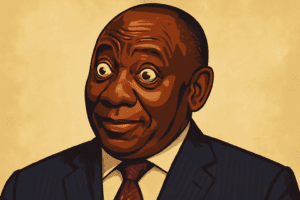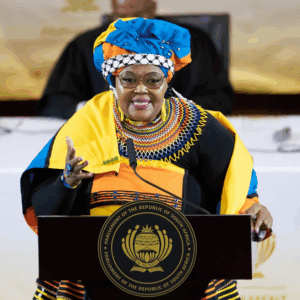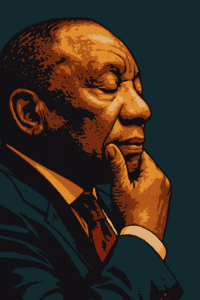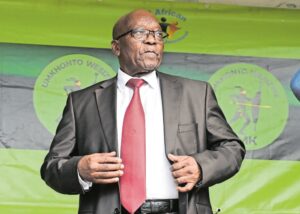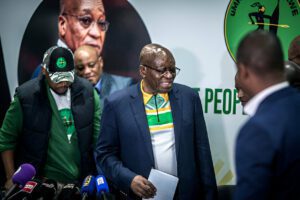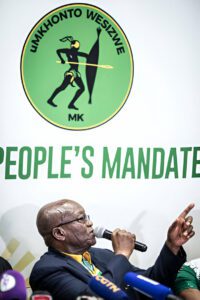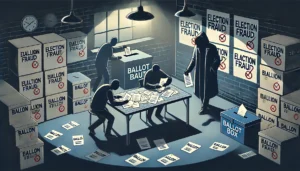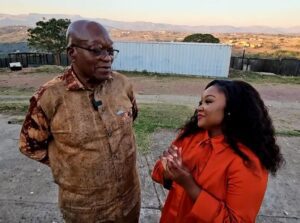In a wide-ranging interview on SMWX, Darren Campher, a prominent South African social commentator and political voice, spoke candidly about his recent decision to join the MK Party as head of research. Campher, known for his incisive critique and ideological clarity, revealed the motivations behind his move, how he reconciles his personal values with the party’s vision, and the broader dynamics of South Africa’s political opposition.
Campher’s decision to join MK came after a period of careful reflection and engagement with party leadership. Wearing an MK hoodie during the interview, Campher made it clear that his ideological principles remain intact despite moving into formal politics.
“The one thing that’s undeniable is that EFF and MK have more to gain being on the same side than being enemies,” he asserted.
Campher joined MK as head of research, describing the team he works with as “some of the most brilliant people” he has encountered. His role is to support Members of Parliament (MPs) with well-researched, clear, and accessible policy positions. He emphasized his commitment to bridging the gap between complex political work and the electorate’s understanding of these efforts.
“I was good either way—staying neutral or becoming directly involved in shaping policy,” he explained. “But for me, ensuring that South Africans fall in love with ideology rather than personalities is key.”
Addressing critiques of MK as potentially socially conservative despite its economic progressivism, Campher expressed confidence in the party’s direction.
“I’ve not seen any regressive social policies reflected in the constitution, the policies they advocate for, or the questions MPs ask in parliamentary committees,” he said. “I cannot speak to every controversial statement attributed to individuals, but the party’s official stance is clear.”
He also highlighted MK’s focus on inclusivity, noting that its constitution emphasizes equality across gender and minority groups.
The conversation inevitably turned to the relationship between MK and the Economic Freedom Fighters (EFF), given speculation about ideological alignment and tensions between the two parties. Campher underscored the necessity of collaboration among opposition forces in South Africa.
“We don’t have the luxury of breaking ourselves apart into pieces and hoping we’ll still achieve critical goals like land expropriation, nationalization, and free education,” he argued. “We must consolidate our efforts strategically.”
Despite differences and public friction, Campher suggested that ideological alignment within the Progressive Caucus—a forum for leftist parties—indicates potential for greater cooperation.
Campher described his vision for the MK research team as one that proactively identifies public sentiment and translates it into actionable policy positions for MPs. His aim is to create a stronger connection between parliamentary activities and the electorate.
“MPs represent the public, and their work must reflect an understanding of the public’s experiences,” he said. “My goal is to make the public aware of what their votes are achieving in Parliament.”
The interview also touched on broader questions about opposition unity ahead of the 2026 and 2029 elections. Campher pointed to examples where ideological rivals have successfully coordinated, such as in Botswana, and stressed the importance of similar strategies in South Africa.
“When the neoliberal parties need to unite, they do so effectively,” he noted. “We must stop seeing unity on the left as optional.”
He suggested that opposition parties like the MK and EFF could mobilize significant support if they coordinated actions on shared goals, such as land reform or tackling economic inequality.
